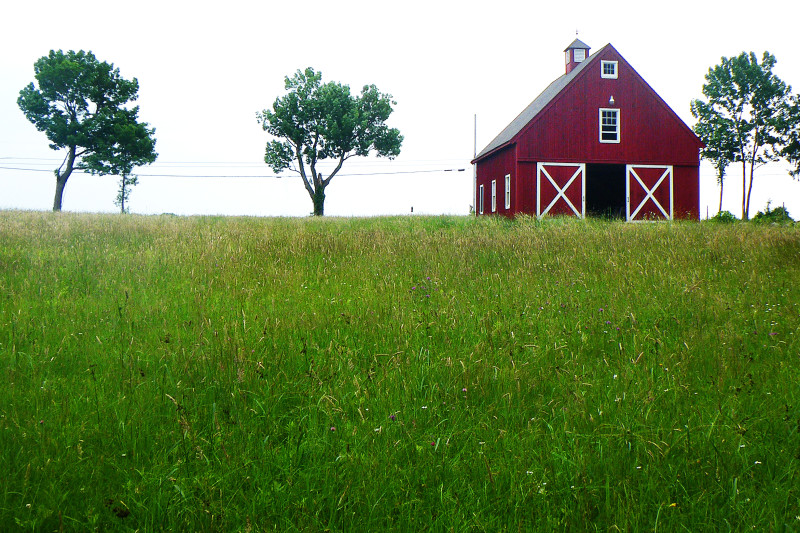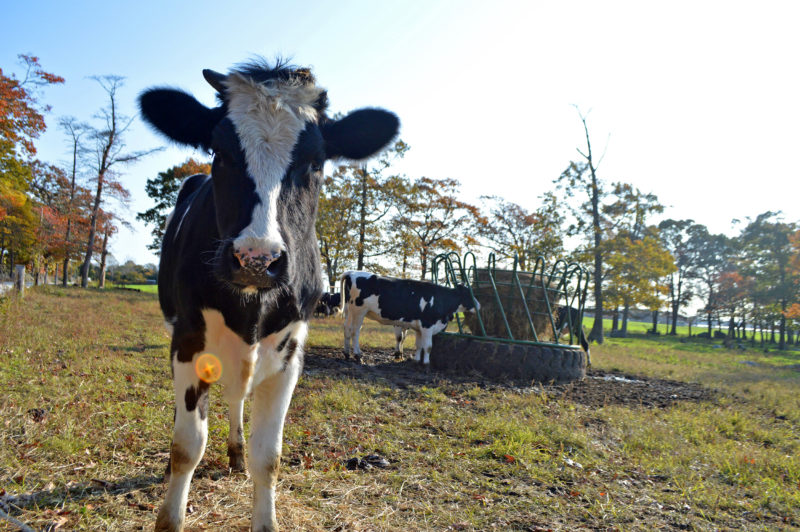How to protect your land forever with a conservation restriction
Russ Keeler calls his 65-acre Rochester farm, the Red Barn Farm, his magnum opus – “my great work.” Each year, he and his family take small steps to improve their homestead: restoring the fields, managing the forest, and adding vegetable gardens and livestock. The Keelers know their hard work will be protected forever because 10 years ago, the family worked with the Buzzards Bay Coalition and their local land trust on a conservation restriction for their farm.
What is a conservation restriction?

Russ Keeler’s property, the Red Barn Farm in Rochester, is forever protected from development with a conservation restriction co-held by the Buzzards Bay Coalition and the Rochester Land Trust.
Land conservation doesn’t always mean purchasing a property outright. In fact, most of the land that the Coalition conserves is protected using a tool called a conservation restriction.
A conservation restriction is a voluntary land protection agreement on private property. (In states outside of Massachusetts, it’s referred to as a conservation easement.) These legal agreements permanently protect private lands like woods, farms, salt marshes, shorelines, and cranberry bogs from any kind of development.
Conservation restrictions allow land owners to protect their land forever while still keeping ownership of it. There are also tax benefits for land owners who set up a conservation restriction.
“For us it was a win-win situation,” said Keeler about his decision to put a conservation restriction on his farm. “There were great financial benefits with reduced taxes, and we could protect the land around us and feel good about it.”
One of the largest recent land conservation projects on Buzzards Bay used conservation restrictions to protect hundreds of acres of forests and working farmland on Nasketucket Bay in Fairhaven and Mattapoisett.
How do conservation restrictions work?

Conservation restrictions allow land owners to continue to own their land and keep using it for activities like farming and timber harvesting while protecting its natural features from the threat of development. Viveiros Farm in Fairhaven is a working dairy farm that’s protected with a conservation restriction.
The process to create a conservation restriction begins when a land owner decides to donate or sell the development rights for their property to a nonprofit conservation organization. As an accredited land trust, the Coalition currently holds or co-holds 39 conservation restrictions on more than 2,000 acres of land across the region.
Then the land owner and the land trust work together to establish the terms and conditions of the conservation restriction. These include a list of the property’s important ecological features and the benefits of those features for clean water, wildlife, and other natural resources. Conservation restrictions also define allowable activities like farming or timber harvesting, as well as the activities that aren’t allowed, including building additional houses, subdividing the property, or disturbing wildlife habitats.
When Keeler decided to put a conservation restriction on his property, he worked with the Coalition and his local land trust, the Rochester Land Trust. The two organizations now co-hold this conservation restriction and visit the property once a year to make sure the terms are being followed. “I was able to do what I wanted: continue to control the land for as long as I owned it, and at the same time protect it from development forever,” Keeler said.
Once a conservation restriction is finalized and recorded, it’s permanent. The land owner may sell or pass down the protected land, but all restrictions must remain in place.
Keeler tells other land owners that conservation restrictions are worth doing if their land has development potential and they want to protect it for the future. “You have to love the land and want to keep it the way it is,” he said. “If you want to keep your land long-term and pass it down to your children, you can leave a legacy after you’re gone.”
If you want to protect your land forever, we can help. Contact the Coalition to learn more.